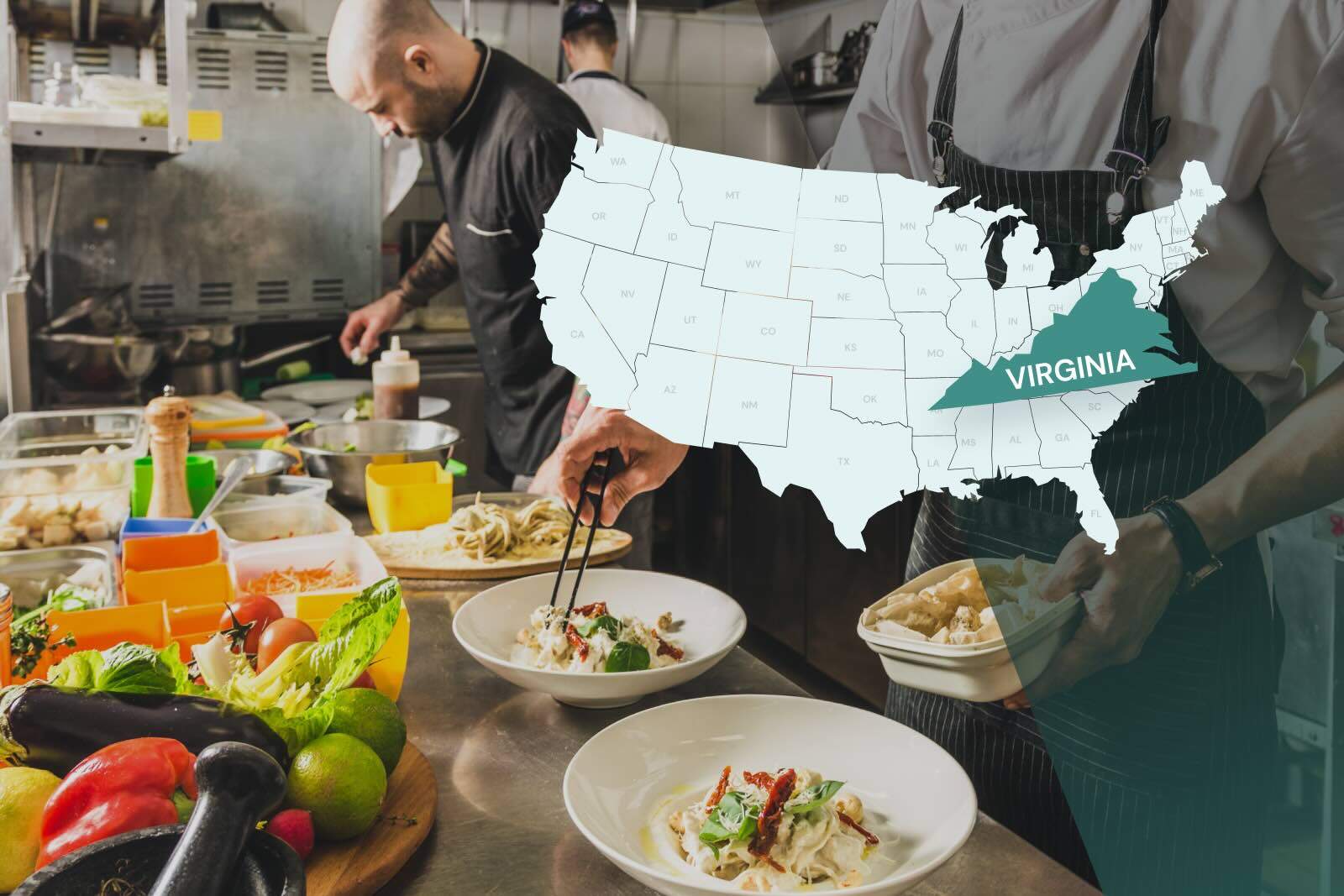From the sprawling Atlantic coastline to the ridges and slopes of the Appalachian Mountains, Virginia’s food is as diverse as its landscape. Whether it's seafood overlooking Chesapeake Bay or its official food–cured ham (served with eggs, biscuits, and gravy, of course)–the state relies on food safety regulations to keep Virginians safe from foodborne illnesses.
Like other states, Virginia adopts elements of the Food and Drug Administration's (FDA) Food Code, applying certain recommendations to its own regulations. That’s what we’ll cover in this blog, including:
Which version of the FDA Food Code does Virginia use?
Does Virginia require food handler training?
Does Virginia require allergen awareness training?
Does Virginia require food manager certification?
Which version of the FDA Food Code does Virginia use?
The FDA Food Code provides food safety recommendations for the entire country. States, territories, counties, and cities can then pick and choose which guidelines they choose to adopt.
The FDA updates the code every two years, so it evolves alongside our understanding of food safety science. The most current edition was released in 2022. However, Virginia uses the 2017 edition as a guide for the Virginia Food Regulations.1, 2
The 2017 FDA Food Code mentions food handlers but does not mandate food handler training. It talks about food allergen awareness (persons in charge must be aware of risks and prepared to discuss them in inspections). Lastly, the 2017 FDA Food Code recommends that persons in charge train to become certified food protection managers.
Let’s now turn to Virginia and see how it chooses to adopt these recommendations.
Does Virginia require food handler training?
No, food handler training and food handler cards are not required in Virginia. However, your employer may have other requirements.
Does Virginia require allergen awareness training?
No, formal food allergen awareness training is not required in Virginia. However, the state does mandate that staff training in food establishments must include food allergy awareness.3
Persons in charge who have earned their food protection manager certification have demonstrated knowledge of allergens in the certification process. They are responsible for training their team.
Does Virginia require food manager certification?
Yes, establishments are required to have a certified food manager present during all hours of operation.
Virginia requires at least one person with supervisory and management responsibility and the authority to direct and control food preparation and service to be a certified food protection manager, demonstrating proficiency in required knowledge and information through passing a test that is part of an accredited program.4
Virginia is a close neighbor to Maryland and Washington D.C., so if you’re in the foodservice industry and live in the area, it makes sense to review those states’ requirements as well.
The takeaway
In Virginia, food protection managers are critical in training food handlers and upholding food safety best practices. A solid grasp of food safety and how it impacts your kitchen and your customers is essential to any successful business. If you need to renew your credentials or need support in training your staff, turn to Trust20’s accredited products today!
Sources:
-
FDA: 2017 Food Code
-
The Commonwealth of Virginia: Virginia Food Regulations
-
The Commonwealth of Virginia: Food Allergen Awareness
-
Virginia Administrative Code: 12VAC5-421-55





.png)

.png)
